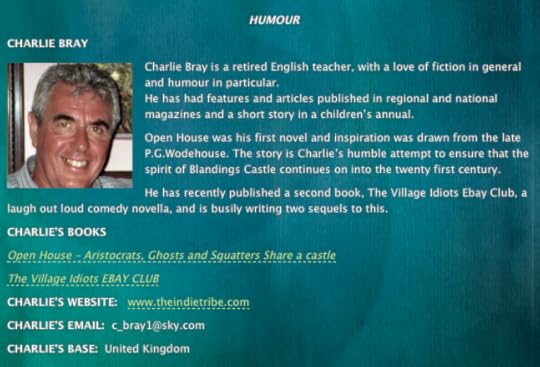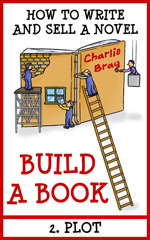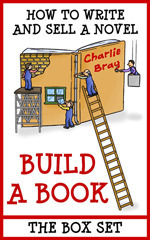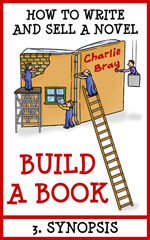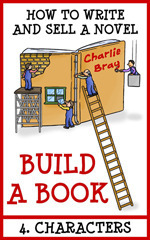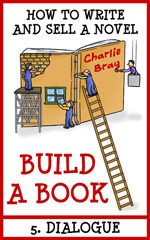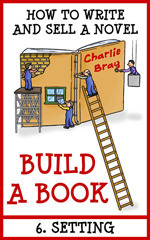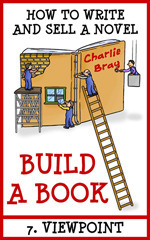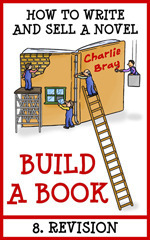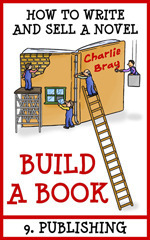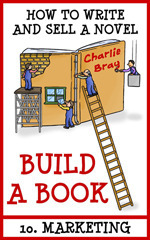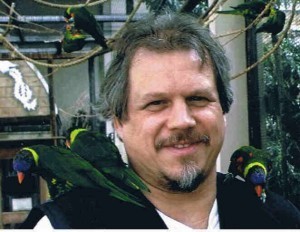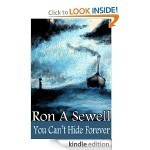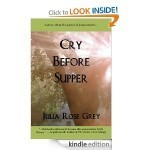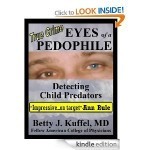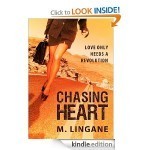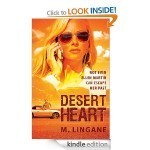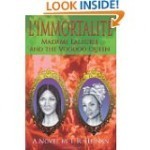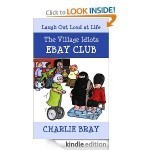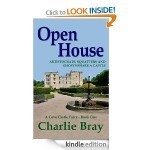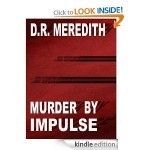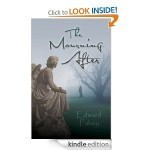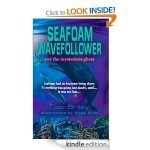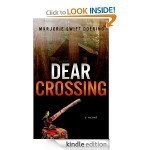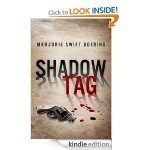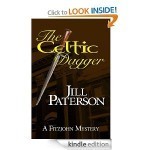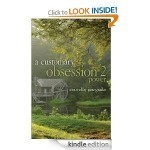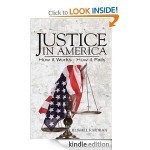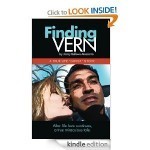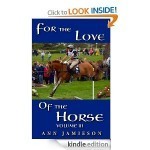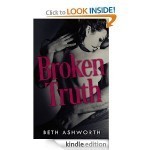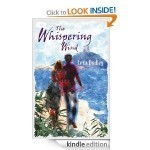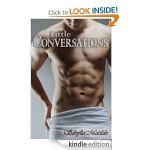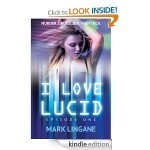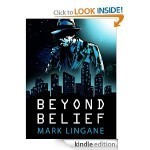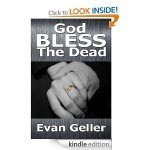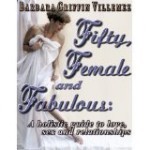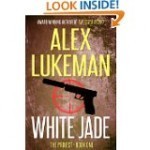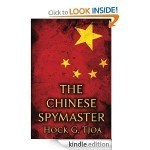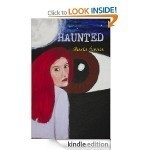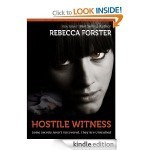Charlie Bray's Blog, page 5
February 17, 2014
From first draft to eBook and beyond via the INDIETRIBE PUBLISHING SERVICE
Welcome to the INDIETRIBE PUBLISHING SERVICE
About to complete the first draft of your novel?
Need help proofreading, publishing and marketing it?
INDIETRIBE WILL DO IT ALL FOR YOU FOR A ONE-OFF, EXTREMELY COMPETITIVE FEE
We will proofread your manuscript, publish it as a kindle eBook, and then market it to ensure that it sells.
THE INDIETRIBE PUBLISHING SERVICE
So, what will the package do for you?
PROOFREAD YOUR MANUSCRIPT
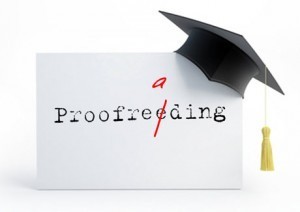 We will ensure that your manuscript is free of any spelling mistakes, punctuation slips, grammatical errors, or typos. We will then be able to publish your book with confidence.
We will ensure that your manuscript is free of any spelling mistakes, punctuation slips, grammatical errors, or typos. We will then be able to publish your book with confidence.
Style guides are used, and the necessary distinction between UK English and American English is applied.
We study every line of your text twice, correcting errors as we go along. Our tracked changes will enable you to accept or discard our suggestions, so that you remain entirely in control.
You then send us the amended final draft, together with a jpg image of your front cover.
UPLOAD IT TO AMAZON KINDLE TO PUBLISH AN EBOOK
 We will format, prepare and upload your book to Amazon Kindle, creating a professional digital file of your book.
We will format, prepare and upload your book to Amazon Kindle, creating a professional digital file of your book.
Then, here’s where the proper work starts. The work that will get your book up Amazon’s sales rankings.
We know how to ensure your book sells well on Kindle and does not sit forever in the shadows of Amazon. We know how to get your book ranked high on Amazon’s search engines by applying the right keywords and phrases, creating an eye-catching killer description which uses Amazon’s secret HTML code, and putting your book in front of the exact target audience that you need to attract. We also know how to organise your book so that you take full advantage of Amazon’s ‘look inside’ feature.
Most self-publishing authors miss out on this process, which is the difference between success or failure in a very competitive market.
MARKET THE PUBLISHED EBOOK
We will review and feature your published book comprehensively on Indietribe.
We will conduct a full interview with you on Indietribe.
We will guest one of your blogs on Indietribe, where you can plug your new book unashamedly.
And how much does all this cost?
For all this we will charge a straightforward, one-off fee, based on the word count of your novel.
Up to 50,000 words £350 ($587 U.S.)
Up to 70,000 words £500 ($838 U.S.)
Up to 90,000 words £650 ($1090 U.S.)
Up to 120,000 words £850 ($1425 U.S.)
If you would like to arm yourself with all the advantages that the INDIETRIBE PUBLISHING SERVICE offers now, or in the future, please submit the form below. Instruct us to go ahead immediately, or, if your first draft is not yet finished and you’d like to reserve the package for a future date, then you can do so by paying a £50 deposit.
Name:
Email Address:
Enter approximate word count and whether you wish to proceed now or reserve time in the future
Any other comments or questions you’d like to make
February 14, 2014
Authors AtoZ – Are you in it yet?
INDIETRIBE’S AUTHORS A to Z
MAKE SURE YOU’RE SEEN AMONGST EVERYBODY WHO’S ANYBODY

Our A to Z of INDIE AUTHORS is going from strength to strength and quickly filling up with self-published authors, keen to ensure that their details are seen by the thousands of readers, publishers and writers who regularly use it as an essential resource to find writers and books.
Here is a sample entry showing what you can expect your listing to look like:
Or click here to see the actual live edition
The A to Z of INDIE AUTHORS lists Self-Published authors alphabetically by genre. Conventionally published authors who undertake their own marketing are also eligible for entry.
A one-off fee of £10 (approx $16 U.S.) secures a permanent listing under one specific genre.
You can duplicate your entry in other genres for a one-off fee of £5 (approx $8 U.S.) per genre.
YOUR LISTING WILL REMAIN IN THE A to Z of INDIE AUTHORS FOR AS LONG AS YOU WANT IT TO. YOUR ENTRY WILL NOT EXPIRE, AND CAN BE AMENDED, WHEN REQUIRED, AT NO CHARGE.
THE A to Z of INDIE AUTHORS IS A REGULAR FEATURE OF THE INDIETRIBE WEBSITE, WHICH IS GROWING LIKE WILDFIRE.
DON’T GET LEFT BEHIND. GET YOURSELF AND YOUR BOOKS FEATURED
DON’T BE LEFT IN THE COLD - SIGN UP NOW BY SUBMITTING THE FORM ON THIS LINK
February 12, 2014
News Flash: Charlie Bray publishes second BUILD A BOOK booklet
Great News! The second booklet from the series, BUILD A BOOK, Plot, is released today by the Indietribe.
This is the second booklet in the series. Plot covers all the basic plot types, how to deal with the beginning, middle and end of the story, flashbacks, foreshadowing, subplots, and how to deconstruct other novels. It shows you, in fine detail, how to construct a great work of fiction and how, when appropriate, to let the characters take control and lead the story in a direction of their choosing. It is available now from Amazon.com and Amazon.co.uk
Plot shows you how to create various subplots to run alongside the main plot, deliberately colliding with it from time to time.
It is is the second of ten Booklets in a series which includes Preparation, Plot, Synopsis, Characters, Dialogue, Setting, Viewpoint, Revision, Publishing, and Marketing
Plot is the second of ten keys needed to hone your novel writing skills. It is aimed at all authors, regardless of ability and experience, and provides comprehensive information on plotting a novel.
This booklet, together with the other nine, could represent the best investment you make in your writing career, no matter what stage it’s currently at. Pick and mix or buy the lot. It’s all here waiting for you.
The next eight booklets are imminent, but currently at various stages of publication. Click here to see the latest publishing schedule:
Also available now is the first booklet of the series, Preparation
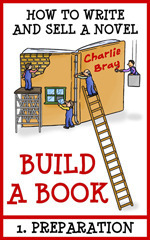 Preparation is available now from Amazon.com and Amazon.co.uk
Preparation is available now from Amazon.com and Amazon.co.uk
Preparation covers the areas that will ensure that you are fully prepared to face the challenge of writing a successful novel. Novel types, best-selling secrets, identifying and reaching out to your target audience, analysing your initial idea, theme, story components, action or character methods, psychological preparation, organisation, routine – it’s all here waiting to help you every step of the way.
Charlie’s BUILD A BOOK series has been devised and published by Indietribe for its members at a price that has been set merely to cover the associated costs. Your support for this initiative would be truly appreciated. Please visit Amazon.com or Amazon.co.uk now and buy.
February 6, 2014
Newsflash! – Members’ Only – BUILD A BOOK – Pre-Publication Offer
BUILD A BOOK is a series of ten booklets designed to provide authors of all levels with advice and tips on how to write and sell a novel. By splitting the workshop into ten distinct booklets, writers are able to work through the various aspects of building, publishing and selling their book in sequential order.
WE ARE OFFERING ALL TEN ISSUES OF BUILD A BOOK – How to Write & Sell a Novel for only £5 ($8 US)
For a one-off initial payment of only £5 ($8US) Indietribe will send you a pdf or Office word version of each of the 10 booklets which comprise BUILD A BOOK, at twice monthly intervals before they are actually published. This equates to only 5o pence per issue, which simply covers our costs.
Booklet 1 – Preparation will be emailed to you immediately.
The subsequent issues will be sent to you as follows:
Booklet 2 – Plot will be emailed to you mid February
Booklet 3 – Synopsis will be emailed to you early March
Booklet 4 – Characters will be emailed to you mid March
Booklet 5 – Dialogue will be emailed to you early April
Booklet 6 – Setting will be emailed to you mid April
Booklet 7 – Viewpoint will be emailed to you early May
Booklet 8 – Revision will be emailed to you mid May
Booklet 9 – Publishing will be emailed to you early June
Booklet 10 – Marketing will be emailed to you mid June
So, the schedule is timed to ensure you have enough time to study and put into practice each aspect of book-building before the next episode hits your computer. And then, within a matter of weeks, you will be in possession of an invaluable box set which will enable you to methodically build and sell very successful novels – and all for an upfront payment of a fiver.
The offer is so good that I ask you to pass on this opportunity to your writer friends. Make sure they benefit too. In fact, at this price, why not treat them to a subscription as a present.
To take out a £5 subscription for this remarkable offer, simply complete and submit the form below. We will then send you a Paypal invoice and, upon receipt, your first issue will be emailed to you immediately.
Name:
Email Address:
Would you like to receive each issue in pdf or Office Word format?
How many copies would you like emailing (You may decide to treat a friend)
Please list the email address that each issue is to be emailed to (There may be more than one if you have treated a friend)
Any other comments?
February 5, 2014
BUILD A BOOK – Regular Writing Tips from Charlie Bray
BUILD A BOOK
Regular Writing Tips from Charlie Bray
1 – PREPARATION
The very first decision to be made by anyone setting out on the daunting task of writing a novel is to become clear on what type of novel is to be written. This in itself can be bewildering.

Charlie Bray
A look at the choice of genres into which books are categorized illustrates the enormous choice facing the novel writer. You don’t even have to visit a book store to see that choice, just visit Amazon on your computer and it is all laid out for you.
Action Adventures, Children’s Books, Comics & Graphic Novels, Crime, Thrillers and Mystery, Erotica, Family Sagas, Fantasy, General Fiction, Gay & Lesbian, Ghosts, Health, Family & Lifestyle, Historical Fiction, Historical Romance, Horror, Humour, Religion & Spirituality, Romance, Science Fiction, Spies, War, Westerns, Young Adult.
And that’s only for starters. All these categories encompass sub-categories. The Crime, Thrillers and Mystery genre, for instance, can be broken down into Anthologies, British Detectives, Crime Series, Hard-boiled, Legal Thrillers, Mystery, Police Procedurals, Psychological Thrillers, Spy Stories, Technothrillers, Thrillers and Women Sleuths.
So to say the writer of a novel is spoilt for choice is an understatement.
To add to the equation, the type of novel is not entirely governed by genre. Is the style funny or deadly serious? Is it set in contemporary or historic times? Is it based on realism or fantasy? Is it feel-good or heart-breaking?
None of the choices above are likely to give you much indication as to what sort of book you should write. They simply serve the purpose of arming you with the choices.
Your choice is likely to be based on the type of book you enjoy reading, or a book based upon an area in which you have bags of personal experience. Your very own personality can also dictate the genre which your style would fit. If, like me, you adopt a fairly glib approach to life, humour could well suit you as a category to write in. If you enjoy watching weepy movies, you could well excel at romance novels or family sagas. If you devour anything by Stephen King, horror may be your forte. Ask yourself exactly what sort of novel would set the world alike for you. It is essential that you carry a high level of enthusiasm right through the novel that will ignite your readers’ interest.
Never forget that the best writers are invariably the most prolific readers. The more you read, the better equipped you are, sub-consciously, to choose your genre and adopt a style.
Before you even write the first word of your novel, it’s important to understand your target audience. Who are you actually about to write for?
Within your chosen genre, which books are selling well? It’s your target audience that is reading these. It’s never been easier to identify which books are succeeding. Amazon’s sales rankings are all you need to achieve this. Then you can carefully study a selection of successful books within your category.
The quoted Amazon sales ranking gives a strong indication of which books are selling best within a certain category. This figure is listed within the Product Details on each book listed on Amazon.
Using the Amazon search engine, the first thing you should do is search under Kindle Store or Books, depending whether you intend to publish in e-Book or paperback format. In the left hand column of the Amazon page, you’ll be offered a choice of category. Click on a category relevant to the one you intend to write for. Within that category, choose best-sellers and you will be presented with pages of books that are selling particularly well.
Choose a few books that appear to be similar in style to the book you have in mind and analyse each one separately by clicking on the book’s detail page. Study its sales ranking to see how well it fares with others and, using the book description and reviews, try to work out common threads existing within the most successful books.
Create a short list of such books and consider buying them so you can analyse each one carefully, studying the author’s techniques. Study how characterization and dialogue is used, how settings are created, and what ‘hooks’ are used early on to capture interest. Study how each book is constructed and look out for similarities. Study the length, again looking for the ‘normal’ length of a book within your chosen genre.
By doing these exercises, you will work out what type of book within the genre sells well and why?
The next step is to work out who it is selling to. Who is the target audience, because this is going to be your target audience. It is possible to aim your book at the very readers that are buying the top selling books that you have identified. This is something that I will cover in a later post and which is covered in detail in the first of my Build A Book booklets highlighted below.
So, that’s it for this edition. I hope you enjoyed this first issue of a regular series of tips aimed to help and encourage writers of all ability levels. During the series, I’ll explore the many aspects of writing a novel,including Preparation, Plot, Synopsis, Characters, Dialogue, Setting, Viewpoint, Revision, Publishing and Marketing.
Please bring this series to the attention of your writer friends and remind them you can join Indietribe for free. Indietribe exists to help and promote self-published authors worldwide. If you’re not yet a member, JOIN NOW FOR FREE.
Make sure you don’t miss a single edition of this new series by clicking on the Subscribe To Our Mailing List button on the right hand side bar.
Charlie has started to publish a series of booklets to accompany this series of posts, and to delve deeper into each aspect of building a book.
They will all be available from Amazon.
The first one, Preparation, is available now on Amazon.com and Amazon.co.uk
To view the schedule of publication for the forthcoming booklets, please click here.
I would like to involve as many members as possible in this new series and it would be great if you became a part of it.
If you have a tip on any aspect of Building a Book, and would like to share it with others, please submit the form below and I will do my best to include it.
Name:
Email Address:
Please write out your tip here
Any other comment you would like to make?
February 4, 2014
Guest Blog: Stephen B Pearl
I’m delighted to devote this Guest Blog to a post from our member, Stephen B Pearl, who discusses the concept of fear and how it affects the writer
FEAR: GOOD BAD AND IN SUBMISSIONS
Fear is a barrier to accomplishment; it holds us down, but fear of what. Some people say fear is an illusion; of course those are the same people that step into the street without looking both ways and end up a red smear on the pavement. Fear is a necessary part of life; it warns us of potential danger and encourages us to steer clear of it. It has to have survival value or it would have evolved out of the creatures of this earth by now.
So what exactly is fear? Biologically, adrenalin pumps we may feel cold in our chest or hot all over. Heart rate and blood pressure increase, the pupils dilate and our bodies prepare to fight or run.
Psychologically it’s harder to define. When you take fear out of the context of immediate survival you open up a whole other kettle of fish.
Personally I think fear is an indistinct term covering a broad range of potential responses.
There is the enjoyable fear we feel on a roller coaster. A rush we as a species actively seek out. A fear that tricks our more primitive aspects into terror while our mind sits back and enjoys the surge of adrenalin and the high because we aren’t in any real danger. As a paranormal and adventure writer I work with this kind of fear. This fear is cathartic; it gives a needed rush and also lets us safely explore aspects of other fears that may affect us.
Of course there is the fear of mortal danger. The fear we feel when the vicious dog lunges at us or our car skids out of control on the highway. This is a reasonable fear. I would go so far as to call it a good fear because it protects us. It makes us stand away from danger, watch the road. Without this fear we do stupid things that can get us killed. Having worked in a pool environment I can tell you a bit more of this type of fear might be in order for a lot of folk. Diving in the shallow end is a very good way to end up a talking head.
Then there is the fear of the mind. We imagine the worse. We contemplate the disaster to come. What will I do if my wife is in a bad mood? Is she going to leave me? Will my boss fire me when I tell him that there is no way the project can be completed on time. It’s a disaster and I’ll loose everything. Will I get yelled at and pushed to feel bad about myself. Will my suffering be increased for what ever reason? Will I be denied the things I crave? Will I lose things I put stock in? Will my life be worse than it is?
This last kind of fear is insidious. Yes the bad things could happen but following from them what is the worst case scenario? You end up on the street and get mugged for pocket change. Okay, that is pretty bad. Now, how likely is it to happen? How many escape routes are there between where you are and that outcome?
This kind of fear isn’t all bad. Like most fear a measure of it protects us. It is when it becomes unreasoning that is becomes dysfunctional. You see that your spouse has had a hard day, so fear of their reaction causes you to keep your distance and give them their space until they come to you. Many would call that wisdom. If that fear grows into thinking that they are going to abandon you for the paperboy because they don’t want to talk right away then it has become dysfunctional.
The dysfunctional level of this stops you from taking reasonable action and or spurns you on to doing ludicrous things.
This last mentioned fear is the fear that keeps the writer from submitting their work. The fear of “what if they don’t like it?” This is a fear I fight with. Rejection is never easy. Epically if you’ve had certain types of upbringings, but the surest way to fail is not to try.
I’ve read posts by some people that were critical of people that have a hard time dealing with the rejections that are inevitable in the writing industry. To these people I say I’m glad you’ve had someone who made you believe in yourself somewhere along the road, not everyone is so lucky.
So let’s talk about dealing with this fear, not as a judgement but in a practical sense. Let’s look at it for the paper tiger it is.
First, realise that the editor isn’t your parent, teacher, friend, spouse or any of these emotionally charged roles. They are an overworked, possibly underpaid, person who has a stack of stories on their desk that is threatening to crush them. In short, it isn’t their job to validate you or invalidate you. Their job is to pick a story that suits their publication that they think will make them money. That’s it. They see your story and judge your story. They often make mistakes and if they actually knew you they might really like you. Or not, but either way they don’t know you. All they know are the words on a page in front of them. A page like the millions they have seen before and will see later. Knowing this, don’t give them emotional power. They don’t intend to hurt you they just want to clear their desk. Do the best work you can, format it correctly for your market (This is a reasonable functional level of fear response to rejection because it does something practical to avoid it) then send it out with an attitude that it just doesn’t matter.
The proviso on ‘it just doesn’t matter,’ is if the editor is nice enough to give you feed back. A rejection with feed back is saying “nice try”. The editor might think it’s a fine little story, but just not right for his publication. Or maybe they run one dark story and one light story in each magazine, and they’re full up on dark for the next two years. In short, accept the good in the rejection and discount the rest as “it just doesn’t matter” which when you’re trying to make a buck can be hard to do but the important thing is to not let it hit your self-esteem.
Doing this makes it easer to take. Reason helps keep fear in check. Also using your imagination. Editors have a life outside your story. If it helps deaden the sting think about this.
The editor that saw your piece may well have been stuck in traffic for an hour reaching their office, or just dealt with a backed up toilet, had a fight with their spouse. Gone through any number of the everyday things “humans” go through that can predispose us to be more critical than we otherwise would be.
Remember, editors are human with the same issues as you and me. So do you really want to let a human who you have never even met make you feel so bad that you don’t submit your work? If you received a letter telling you that you were a bad person because you didn’t make a donation to a charity would you let it affect you? It’s the same thing. The rejection letter is there for any number of reasons, and it’s just a letter written by a person. Take the story and send it to the next name on your list or read it over see your mistakes correct them then send it out again.
So dealing with the fear of manuscript submission. Let’s look at the options. Leave your story sitting on the hard drive and never show it to anyone. You’ll never be criticized or rejected. Is that enough for you? Was writing it benefit enough in its own right? For most of us I think not. Sharing the work brings it to life. We want validation and the only way to get it is to risk criticism.
Agonise over every rejection pull yourself down into depression then resubmit. Trust me I know this one all too well. The thing is look at the power you’re giving the editor who doesn’t even really know that you exist. If the rejection spawns a real analysis of your writing that leads to improvements that isn’t all bad, but what I’ve learned (the hard way) and still struggle with is that depression isn’t necessary for this process.
This last point is important because what do we fear with rejection. We fear it will make us feel bad, we fear not getting the pittance most markets pay as well as not building a career, but those are long term and a single rejection is a drop in the bucket towards them. No, we fear being made to feel bad. The thing we have to ask ourselves is who is making us feel bad. Look in the mirror. Yup it’s that nasty piece of work staring back at you. Programmed years ago by parents, teachers, and life in general to whip you for each perceived failure. I think we all should stop listening to that idiot’s trash talk and maybe give them the hug they so obviously need because they must be wounded to treat others the way they treat you.
I’ll finish off with an aside that relates to fear. Fear as an excuse. This is a true story.
A couple of years ago I was doing a book signing in the city I grew up in, and I met an old friend I hadn’t seen in nearly thirty years. We chatted and it turns out her son is an aspiring writer. Because of our old association I offered to have a look at his work, give him some feed back and possibly introduce him to some people I’ve met in my own efforts.
He sent me an e-mail where he, admittedly politely, said he’d let me have a look at some excepts of his work, but that he was afraid of someone steeling his ideas. I dropped it like a hot potato. An old friend of your mother’s who’s a step or two up in the industry offers to help you and you effectively say you think he’s a thief, no. I have enough ideas floating around in my head to keep my fingers clicking keys for the next three hundred years. But this is a convenient fear for my friend’s son. If he never seeks feedback he never has to face someone telling him his writing is less than perfect. If he doesn’t cultivate industry contacts rejections, if he sends out at all, remain nebulous and without cause. The use of the “steal my idea” fear is very convenient. If this is one of yours I hate to burst your bubble, but there are no new ideas. Everything is how you blend together things that have already been done and add your own twist.
Well folks, what started out as a quick one page blog has turned into a ramble. I hope it may help some folk who are walking a road similar to mine with a distillate of hard learned lessons.
I also hope you’ll consider buying my books of course. Eh, honesty is the best policy.
In any case, May the roads you walk be smooth and level, the breeze sweet upon your skin, may your companions be true and merry and there be joy at journey’s end.
I hope you enjoyed reading this great post from Stephen and can relate it to feelings you have experienced.
If you would like to be interviewed, have your book reviewed, and post a guest blog, sign up now to INDIETRIBE GOLD
Guest Blog:
I’m delighted to devote this Guest Blog to a post from our member, Stephen B Pearl, who discusses the concept of fear and how it affects the writer
FEAR: GOOD BAD AND IN SUBMISSIONS
Fear is a barrier to accomplishment; it holds us down, but fear of what. Some people say fear is an illusion; of course those are the same people that step into the street without looking both ways and end up a red smear on the pavement. Fear is a necessary part of life; it warns us of potential danger and encourages us to steer clear of it. It has to have survival value or it would have evolved out of the creatures of this earth by now.
So what exactly is fear? Biologically, adrenalin pumps we may feel cold in our chest or hot all over. Heart rate and blood pressure increase, the pupils dilate and our bodies prepare to fight or run.
Psychologically it’s harder to define. When you take fear out of the context of immediate survival you open up a whole other kettle of fish.
Personally I think fear is an indistinct term covering a broad range of potential responses.
There is the enjoyable fear we feel on a roller coaster. A rush we as a species actively seek out. A fear that tricks our more primitive aspects into terror while our mind sits back and enjoys the surge of adrenalin and the high because we aren’t in any real danger. As a paranormal and adventure writer I work with this kind of fear. This fear is cathartic; it gives a needed rush and also lets us safely explore aspects of other fears that may affect us.
Of course there is the fear of mortal danger. The fear we feel when the vicious dog lunges at us or our car skids out of control on the highway. This is a reasonable fear. I would go so far as to call it a good fear because it protects us. It makes us stand away from danger, watch the road. Without this fear we do stupid things that can get us killed. Having worked in a pool environment I can tell you a bit more of this type of fear might be in order for a lot of folk. Diving in the shallow end is a very good way to end up a talking head.
Then there is the fear of the mind. We imagine the worse. We contemplate the disaster to come. What will I do if my wife is in a bad mood? Is she going to leave me? Will my boss fire me when I tell him that there is no way the project can be completed on time. It’s a disaster and I’ll loose everything. Will I get yelled at and pushed to feel bad about myself. Will my suffering be increased for what ever reason? Will I be denied the things I crave? Will I lose things I put stock in? Will my life be worse than it is?
This last kind of fear is insidious. Yes the bad things could happen but following from them what is the worst case scenario? You end up on the street and get mugged for pocket change. Okay, that is pretty bad. Now, how likely is it to happen? How many escape routes are there between where you are and that outcome?
This kind of fear isn’t all bad. Like most fear a measure of it protects us. It is when it becomes unreasoning that is becomes dysfunctional. You see that your spouse has had a hard day, so fear of their reaction causes you to keep your distance and give them their space until they come to you. Many would call that wisdom. If that fear grows into thinking that they are going to abandon you for the paperboy because they don’t want to talk right away then it has become dysfunctional.
The dysfunctional level of this stops you from taking reasonable action and or spurns you on to doing ludicrous things.
This last mentioned fear is the fear that keeps the writer from submitting their work. The fear of “what if they don’t like it?” This is a fear I fight with. Rejection is never easy. Epically if you’ve had certain types of upbringings, but the surest way to fail is not to try.
I’ve read posts by some people that were critical of people that have a hard time dealing with the rejections that are inevitable in the writing industry. To these people I say I’m glad you’ve had someone who made you believe in yourself somewhere along the road, not everyone is so lucky.
So let’s talk about dealing with this fear, not as a judgement but in a practical sense. Let’s look at it for the paper tiger it is.
First, realise that the editor isn’t your parent, teacher, friend, spouse or any of these emotionally charged roles. They are an overworked, possibly underpaid, person who has a stack of stories on their desk that is threatening to crush them. In short, it isn’t their job to validate you or invalidate you. Their job is to pick a story that suits their publication that they think will make them money. That’s it. They see your story and judge your story. They often make mistakes and if they actually knew you they might really like you. Or not, but either way they don’t know you. All they know are the words on a page in front of them. A page like the millions they have seen before and will see later. Knowing this, don’t give them emotional power. They don’t intend to hurt you they just want to clear their desk. Do the best work you can, format it correctly for your market (This is a reasonable functional level of fear response to rejection because it does something practical to avoid it) then send it out with an attitude that it just doesn’t matter.
The proviso on ‘it just doesn’t matter,’ is if the editor is nice enough to give you feed back. A rejection with feed back is saying “nice try”. The editor might think it’s a fine little story, but just not right for his publication. Or maybe they run one dark story and one light story in each magazine, and they’re full up on dark for the next two years. In short, accept the good in the rejection and discount the rest as “it just doesn’t matter” which when you’re trying to make a buck can be hard to do but the important thing is to not let it hit your self-esteem.
Doing this makes it easer to take. Reason helps keep fear in check. Also using your imagination. Editors have a life outside your story. If it helps deaden the sting think about this.
The editor that saw your piece may well have been stuck in traffic for an hour reaching their office, or just dealt with a backed up toilet, had a fight with their spouse. Gone through any number of the everyday things “humans” go through that can predispose us to be more critical than we otherwise would be.
Remember, editors are human with the same issues as you and me. So do you really want to let a human who you have never even met make you feel so bad that you don’t submit your work? If you received a letter telling you that you were a bad person because you didn’t make a donation to a charity would you let it affect you? It’s the same thing. The rejection letter is there for any number of reasons, and it’s just a letter written by a person. Take the story and send it to the next name on your list or read it over see your mistakes correct them then send it out again.
So dealing with the fear of manuscript submission. Let’s look at the options. Leave your story sitting on the hard drive and never show it to anyone. You’ll never be criticized or rejected. Is that enough for you? Was writing it benefit enough in its own right? For most of us I think not. Sharing the work brings it to life. We want validation and the only way to get it is to risk criticism.
Agonise over every rejection pull yourself down into depression then resubmit. Trust me I know this one all too well. The thing is look at the power you’re giving the editor who doesn’t even really know that you exist. If the rejection spawns a real analysis of your writing that leads to improvements that isn’t all bad, but what I’ve learned (the hard way) and still struggle with is that depression isn’t necessary for this process.
This last point is important because what do we fear with rejection. We fear it will make us feel bad, we fear not getting the pittance most markets pay as well as not building a career, but those are long term and a single rejection is a drop in the bucket towards them. No, we fear being made to feel bad. The thing we have to ask ourselves is who is making us feel bad. Look in the mirror. Yup it’s that nasty piece of work staring back at you. Programmed years ago by parents, teachers, and life in general to whip you for each perceived failure. I think we all should stop listening to that idiot’s trash talk and maybe give them the hug they so obviously need because they must be wounded to treat others the way they treat you.
I’ll finish off with an aside that relates to fear. Fear as an excuse. This is a true story.
A couple of years ago I was doing a book signing in the city I grew up in, and I met an old friend I hadn’t seen in nearly thirty years. We chatted and it turns out her son is an aspiring writer. Because of our old association I offered to have a look at his work, give him some feed back and possibly introduce him to some people I’ve met in my own efforts.
He sent me an e-mail where he, admittedly politely, said he’d let me have a look at some excepts of his work, but that he was afraid of someone steeling his ideas. I dropped it like a hot potato. An old friend of your mother’s who’s a step or two up in the industry offers to help you and you effectively say you think he’s a thief, no. I have enough ideas floating around in my head to keep my fingers clicking keys for the next three hundred years. But this is a convenient fear for my friend’s son. If he never seeks feedback he never has to face someone telling him his writing is less than perfect. If he doesn’t cultivate industry contacts rejections, if he sends out at all, remain nebulous and without cause. The use of the “steal my idea” fear is very convenient. If this is one of yours I hate to burst your bubble, but there are no new ideas. Everything is how you blend together things that have already been done and add your own twist.
Well folks, what started out as a quick one page blog has turned into a ramble. I hope it may help some folk who are walking a road similar to mine with a distillate of hard learned lessons.
I also hope you’ll consider buying my books of course. Eh, honesty is the best policy.
In any case, May the roads you walk be smooth and level, the breeze sweet upon your skin, may your companions be true and merry and there be joy at journey’s end.
I hope you enjoyed reading this great post from Stephen and can relate it to feelings you have experienced.
If you would like to be interviewed, have your book reviewed, and post a guest blog, sign up now to INDIETRIBE GOLD
Author Interview: Stephen B Pearl
Welcome to our series of Author Interviews, where Charlie Bray chats to a variety of Indie writers about their lives and their books.
If you would like to be interviewed, have your book reviewed, and post a guest blog, sign up now to INDIETRIBE GOLD
Today I am delighted to interview acclaimed Canadian fantasy, science fiction and romance writer, Stephen B Pearl.
Hello Mr. Pearl.
Hi, and please call me Stephen. When people say Mr. Pearl I keep thinking my father is sneaking up behind me.
I can relate. Okay Stephen. I guess the first question I want to ask is about your Paranormal Romance / Adventure, Worlds Apart. Why did you set it in England?
I needed a place that had truly pre-historic monuments and a strong mystical reputation. I also am quite fond of England, especially the town of Bakewell in Derbyshire where my wife grew up. Because my mother in law still lives in Bakewell I’ve visited it often. As such I’d already done much of my homework for using it as a location. I know where Bakewell Autoparts and Pet Supplies is and other details that lend the writing a sense of realism. The town is also close to the Nine Ladies stone circle, which suited my book perfectly for reasons explained in the text.
Two of your other titles, Tinker’s Plague and Nukekubi, utilise real world settings. Is this a trend in your work?
Not really an intentional one. I do like the dynamic of anchoring a story in a real place lending it a feel that maybe this could be happening. I love that aspect of the The Dresden Files books by Jim Butcher and the Weird Stone of Brisingamen by Alan Garner. I more or less fell into it. As I did in the Alternative Earth sections of Worlds Apart, I will make a world out of whole cloth if it is appropriate to the book. However, if I can incorporate elements of our world into my writing I will. I think people like to be made to wonder a little if elements of a story might in some way be true or in the case of a book set in the future, like Tinker’s Plague, that the story could happen.
In Worlds Apart, you use religious bigotry to drive much of the action. What role does spirituality play in your life?
I am a devout Pagan following a Neo-Egyptian path. I’m also an archetypest. What that means is that I think there are only a few divine forces, but they have many names and each name takes on a flavour from those who use it. These labels ultimately all come back to the same force. The number of these forces, or rays, is a topic open for discussion, but if you examine any pantheon you can see exemplars of each.
Because of this belief I don’t get hung up trying to tell someone they are on the wrong path because to deny the gods of another would be to deny my own. I simply use the Egyptian Gods and Goddesses to codify the universal forces because I resonate better with them that any other.
As long as a person strives to show tolerance and respect to all, and not hurt others or the world unnecessarily, then I figure they are on a good path. Handsome is as handsome does.
So, to answer the actual question. My spirituality influences all aspects of my life. It helped me form the ideal I strive to emulate and calls on me to try and be better. In my writing I try to give a bit of what Tolkien (a devout Christian) gave to me by supplying archetypes people can aspire to.
In Worlds Apart, Markus, your other world wizard, lives in a world where magic is an applied science. If it were possible, do you think our world would benefit or decline from having magic as powerful as you show in your alternative Earth?
I think it would give a new set of problems while solving a bunch. In Markus’s world some individuals, like Markus, have a huge amount of personal power. The individual is more emphasized and social controls, of a necessity, would have to be looser. A cop with a stun wand is going to be rather hesitant about trying to bring down a suspect who could toss them into orbit with a thought.
It would be interesting to see how magic at the level on Markus’s world would play out.
The way I’ve written it in Worlds Apart magic behaves in a consistent manner. Isaac Bonewits in his book Real Magic put forward the argument that magic is in fact a science. I took that thought and jacked the power level to make it more interesting.
Did you intend for Worlds Apart to be such a social commentary or did it just evolve that way in the writing?
I say this often. I intend for all my books to entertain from the start. That is the duty of fiction, to entertain. After that if it can educate or inspire it may transcend from good to great, but the foundation of entertainment must be there first. That said, I do tend to deal with social issues. Tinker’s Plague deals with environmental degradation and economic inequities. Nukekubi showcased a lot about Pagan issues and cultural conflicts. Worlds Apart deals with religious intolerance and government stupidity.
Conflict grows out of issues and I feel if the issues are grounded in reality it adds spice to the conflict. So I have an incentive to pick issues that cut close to the real world then expand on them in the fiction. So half and half is the most honest answer I can give.
I will say this. I actively try to avoid preaching to or at people. The story comes first; any issue will be in service to the conflict for that reason. No one is paying for my opinion.
So, how do you bring out Pagan beliefs in your books?
This varies from book to book. In Slaves of Love I practically ignore religion all together.
In Tinker’s Plague I paint the world as a religious mosaic with all sorts of faiths getting cameos, mostly in profanity.
Nukekubi and Worlds Apart tend to be more demonstrably spiritual because they are dealing with mystical matters and the two tend to be connected. That said it is always in service to the character and the plot.
Ray from Nukekubi just happens to be Pagan because the Pagan faiths are more accepting of magical practices and he is a wizard.
Alcina is a Wiccan priestess because it allowed me to use the false preconceptions many hold against Wicca to create conflict in the story.
What inspired you to write in the first place?
As with most worthwhile endeavours I did it to impress a girl. A hot little number with the bluest eyes you could ever imagine and an English accent that sent a shudder up my spine. Nice thing is, while I don’t really hear the accent anymore, she still has those eyes and I love her more deeply now than that youth ever could have imagined. I wrote an absolutely horrible fantasy novel with her as the damsel in distress, yeah right; I honestly think Joy could scold a dragon into good behaviour. In any case the book is awful and will never see print, but it showed me I could do it. Years later my writing has grown to a point where others want to read it.
So let’s move on to a bit about how you write. What do you think makes a good story?
Everything. Not overly helpful I know. As I see it stories are more woven than built. Character leans on and reflects setting; setting is the result of the actions of characters. The conflict must grow logically from the circumstances of the book. If a plague was released today there would be an effective quarantine, hazmat teems a whole organized response. If it happens in a post-apocalyptic setting those go by the wayside. Taking action must be in the characters’ nature and the action they take must grow naturally from their nature. Jim Kirk isn’t going to pass up the chance to save the pretty woman; it’s not going to happen because it isn’t in his nature.
What is your work style? Do you plan it out on a story ark dive right in, how do you write?
My process is more like Role Playing Gaming than anything else. I set up the world first. Then I populate it with characters that have the right personality to take the actions I need and the skill set to be effective. After that I’ll throw the characters into situations while I record what happens. Often the first few pages, that the audience never sees, are garbage. It takes a little while for the characters to come to life and start directing their own actions. After that I just play Game Master, setting the scene and tossing up challenges and my characters take control.
Going in I’ll know where I’m starting and where I want to finish, though that can change, and I’ll have an idea about some scenes I want to do along the way.
This is how I work, other folk work to a plan and it’s great for them. People need to find their own method and not let other people tell them there is only one way to do things.
What is the biggest thing to avoid when it comes to writing for you?
Forcing a character. If I make a character do something against their nature I’ll get along ten or twelve pages and the whole process stalls. Character action grows from character nature.
Another one would be making people too good. Darkness adds spice. My editor for Worlds Apart and Nukekubi, Karen Dales, may the gods bless her red ink stained fingers she helped me a lot, and I bumped heads on this a couple of times. I have one of my Wiccan characters who is a bigot. Plane and simple, he has other sterling qualities, but he doesn’t like Christians. She wanted me to expunge that element and I refused. The reason being is I wanted to show that there is good and bad in all groups and by having him make outrageous statements it let me have other members of his coven shine by correcting him. It also made him a fuller character with issues of his own.
At another point Karen objected to Markus being rather arrogant. Markus is the male lead in Worlds Apart. I again refused to change the line because Markus on his world is a wizard. His personal power, if directed properly, could level a fair sized town in minutes. He’s a nice guy over all, but he’s not a man to mess with. This has led him to being a little cocky sometimes. Of course he gets deflated on occasion too. Again the flaws make him more human and interesting.
What were the challenges (research, literary, psychological, and logistical) in bringing your work to life?
Which book?
Research: I’ve written a lot of things fairly close to home. Ray, my male lead in Nukekubi, is a lifeguard by profession. I was a lifeguard for more years than I care to think about. The sustainable energy technologies in Tinker’s Plague were drawn from my long term hobby of sustainable energy. As I stated above I’ve often visited Bakewell in Derbyshire which is the main setting for Worlds Apart. I made things a little easier on myself, but I still did a lot of research for all of my books.
Literary: I happen to be severely dyslexic. As I type this rough draft word is making it look like a rainbow of coloured squiggly lines. I fight for each sentence and edit, edit, edit. This is the hardest element for me. I have a gift for storytelling, a very good oral vocabulary, and, if I say so myself, a fair mind. However, for me the nuances of spelling, and to a lesser extent grammar, are a struggle. Of course, knowing this I work very hard to see that it is not reflected in the finished product.
Psychological: Because of how I write I have been in tears as I typed. Remembering what it was like to be called a “Stupid stupid boy,” by the abusive school teacher when I was little so I could bring that to the character of Andy in Tinker’s Sea, a book I am currently trying to place, and make that pain come to life. Drawing forward the exhilaration you feel when you compete with death itself and win more life for the person you set out to save. It is a rush to set your skill and training against death and win. In the end we never triumph but to keep the score even for another day that is a power trip that kicking a ball between a couple of posts just can’t match. So it can be a challenge to go to these places, but one that is well worth it.
Logistical: This is a pain in the backside when one writes in the real world. I lucked out with Tinker’s Plague because the Guelph area was perfectly suited to the story I wanted to tell. With Tinker’s Sea I was forced to write around the geography a lot more. Sadly, with Nukekubi half of the wooded gully I used for one of the scenes no longer exists. It was my playground as a child.
For Worlds Apart there were some issues regarding location and not knowing what the upper floors of some of the buildings were like, but I worked around them.
When writing in a made up world you have a lot more latitude for where you place things though being married to a geologist I have to justify my mountain ranges and lakes with plate tectonics and ancient glaciers. But what ya gonna do?
Can you give us a quick run down of your available works?
Well, the laundry list is below.
Tinker’s Plague: A post-apocalyptic, science fiction, medical and political thriller, Available in paperback from the author. (The publisher went out of business)
Slaves of Love: e-book: A futuristic detective story of love and madness. ISBN: 978-1-9269839-04-2
The Hollow Curse: e-book: A centuries spanning tale of love and obsession. ISBN: 978-1-897532-53-9 Available from Club Lighthouse Publishing: www.clublighthousepublishing.com
Nukekubi: A paranormal, detective novel, ISBN 978-0-9867633-6-6 – eISBN. 978-0-9867633-7-3
Worlds Apart: A paranormal Romance, ISBN eISBN Available in paperback and e-book formats from Dark Dragon Publishing: www.darkdragonpublishing.com
War of the Worlds 2030: Dark, Military SF, Romance, ISBN: eBook ISBN: 9781629290492 | Print ISBN: 9781629290508 Available in paperback and e-book formats from Damnation Books: www.damnationbooks.com
I suggest going to my website: www.stephenpearl.com for more information. You’ll find reviews, free first chapters and a host of information on each book. To go into more detail than I have here would become space prohibitive.
To wrap things up, can you give any advice to people who want to write?
Get out while you can. It is not what you think and it will devour you. If you are already addicted, and it is an addiction, write the story you want to write. Don’t worry about the in thing because by the time you’ve written to meet the trend the trend will be over. Write what you want edit edit edit and get others to critique your work. Be open to guidance and if you make it big toss a quarter in my cup. I have a feeling sitting on a park bench with my recorder and a hat will be my retirement plan.
If you are ready to have your work torn apart and tossed back in your lap so you can put it back together better, stronger faster than it was then check out: www.critters.org
Do you want to say anything in closing?
Thanks for reading and I hope my books appeal to you. Keep smiling.
Thank you so much, Stephen for this in-depth interview and I’m sure our members have found it extremely informative and enjoyable.
Contact information for Stephen B. Pearl
Website: www.stephenpearl.com
Blog: http://stephenpearl.blogspot.ca
YouTube reading: www.youtube.com/watch?v=nlMDmlb-Los@
You Tube channel: http://www.youtube.com/channel/UC14QVfS9kiuc6sK7P3-yOmg/videos?view=0&flow=grid
Face Book: http://www.facebook.com/?ref=tn_tnmn#!/StephenBPearl
Polka Dot Banner: http://www.polkadotbanner.com/index.php?option=com_comprofiler&task=userProfile&user=528
January 31, 2014
FEBRUARY SPOTLIGHT: Pure Indie – Pure Joy!
Welcome to the FEBRUARY issue of our Monthly Spotlight
 To browse or buy a book, click on its front cover to view it on Amazon.com or its title to view it on Amazon.co.uk.
To browse or buy a book, click on its front cover to view it on Amazon.com or its title to view it on Amazon.co.uk.
If your book is not yet booked in for the MARCH SPOTLIGHT, book it in now
SO HERE WE GO WITH THIS MONTH’S SPOTLIGHT:
ACTION and ADVENTURE
You Can’t Hide Forever by Ron A Sewell
‘Think of a game of Chess, with powerful pieces scattered around the board, waiting to bring down the poor king and then the thrills begin’
CONTEMPORARY FICTION
Cry Before Supper by Julia Rose Grey
‘This story will envelop you with its rapture, its uncertainty, its secrets, and escort you through its darkness’
TRUE CRIME
Eyes of a Pedophile by Betty Kuffel
‘Peer inside the mind of a violent child molester and learn how to protect your children’
GENERAL FICTION
Chasing Heart by Mark Lingane
‘An absolute page-turner that hooks you in from the beginning. Once you pick it up, you will not put it down’
Desert Heart by Mark Lingane
‘Heat. Politics. Romance. Sand. War. Bad Coffee. It can only mean one thing. Ellen Martin is off to the Middle East.’
HISTORICAL FICTION
L’Immortalite: Madame Lalaurie and the Voodoo Queen by T.R. Heinan
‘NOLA’s most haunting legend comes to life’
HUMOUR
The Village Idiots Ebay Club by Charlie Bray
‘Quirky people buy quirky things – and Ebay is full of quirky things. DANGER ALERT! What if they can’t stop bidding? What if their lives become quirkier and quirkier as a result? TIME TO JOIN THE EBAY CLUB!’
Open House by Charlie Bray
‘Aristocrats, Ghosts and Squatters Share a Castle’
LEGAL MYSTERY
Murder by Impulse by D R Meredith
‘A Lincoln Continental driven by Amy Steele, wife of millionaire rancher, James Steele, rams a tanker full’ of gasoline
LITERARY FICTION
The Mourning After by Edward Fahey
‘In a world where death is but another beginning, you must trust in what you cannot believe. For those who wonder what lies beyond. For those who love; and hope’
MIDDLE GRADE FICTION
Seafoam Wavefollower and the Mysterious Ghost by Doc Briley
‘SEAFOAM is an exciting, fast-paced adventure filled with thrills, chills, mysticism and friendship’
MYSTERY
Dear Crossing by Marjorie Swift Doering
‘A grisly murder leads Ray Schiller on a case with a rising body count and the potential to derail his personal and professional life’
Shadow Tag by Marjorie Swift Doering
‘Detective Ray Schiller is out to finish what he started, unless it finishes him first’
The Celtic Dagger by Jill Paterson
‘A gripping tale of murder and suspense winds it’s way through the university’s hallowed halls’
MYSTERY ROMANCE
A Customary Obsession 2; Power by Jane Graiko
‘In the second in a three-book series, Laura Delorange and Steve Scolarzski cultivate a new relationship after lifetimes of bitter disappointments’
NON-FICTION
Justice in America: How it Works, How it Fails by Russell F. Moran
‘In this frank and compelling book, attorney and journalist Russell Moran leads the reader on an exciting tour of the system that delivers our rights, and he doesn’t pull any punches’
Your Heart: Prevent and Reverse Heart Disease in Women, Men and Children by Betty Kuffel, M.D.
‘Reduce your risk for the leading cause of death in women and men with information in this guide to heart health for all ages’
PARANORMAL
Finding Vern by Darcy Bellows
‘A true life GHOST story.
Finding Vern is the incredible true story of a friendship that spanned decades and culminated in the love of a lifetime’
PETS AND ANIMALS
For the Love of the Horse III – A Selection of True Horse Stories by Ann Jamieson
‘Enjoy amazing true stories about horses including rags to riches rescues who became international stars, horses who mended families, and opinionated ponies who showed the big boys how it was done’
ROMANCE
Broken Truth by Beth Ashworth
‘What happens when the happy bubble you have been living in for the past year has all been a twisted, torturous path of lies…once truth has been broken, can love still find a way?’
The Whispering Wind by Lexa Dudley
‘This is a romantic and beautiful love story that will strike a cord deep in ones heart’
Little Conversations by Sibylia Matilde
‘Through a flash of torrid intensity, Ronin and Devin struggle to be friends…just friends, while the shadows of the past keep getting in the way’
SCI-FI
I Love Lucid by Mark Lingane
‘A story for the dubstep generation. Part one of a five part story told in weekly instalments.’
Beyond Belief by Mark Lingane
‘Joshua Richards has a problem. His clients are dying. What’s even more worrying is that they appear to be planning to kill him first’
God Bless the Dead by Evan Geller
‘The truth will not set you free. The truth will get you killed’
SELF-HELP
Fifty, Female & Fabulous by Barbara Villemez
‘One doesn’t have to be at a mature age to benefit from the concepts that enhance and empower the Divine Feminine in all women’
THRILLER
White Jade by Alex Lukeman
WHITE JADE spins a web of deceit and murder across the globe, against the backdrop of a deadly international power game.
The Chinese Spymaster by Hock Tjoa
‘Chinese Intelligence uncovers a North Korean trying to sell a nuclear device.’
Haunted by Maria Savva
‘Nigel Price has MURDER on his mind’
Hostile Witness by Rebecca Forster
‘Blending complex psychological character portraits with spot-on courtroom drama, Forster’s riveting legal thriller keeps the plot twists coming until the last, satisfying page’
TRAVEL ESSAY
Solitary Desire by Kim Defforge
‘The author takes us along on her journey as she narrates the life events that weave an emotional tapestry, from adolescent imagination to adult life situations’
YOUNG ADULT
Shadow Embraced by Cheree Smith
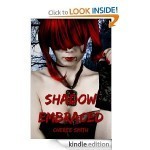
‘Scar thinks the creature that terrorises her while asleep isn’t real, but when she’s abducted and taken to a reform school meant to contain creatures too dangerous to function in society, she starts to wonder whether she isn’t some monster’
I hope you enjoyed our February Spotlight and that you are tempted to part with a few of your pennies to enjoy the delights of some remarkable indie books.
Indie Authors – The Authors A to Z guide is launching soon. Make sure you’re in it:
http://www.theindietribe.com/category/join-authors-a-to-z/

January 25, 2014
Members Notes: Fan Appreciation Weekend organised by Jami M Brumfield
Fan Appreciation Weekend! As a thank you to all the fans and supporters of the new Young Adult Paranormal Romance Lone Wolf Rising we are offering it for only .99 (this weekend only). Get a copy for yourself and one for a friend… books make great gifts.
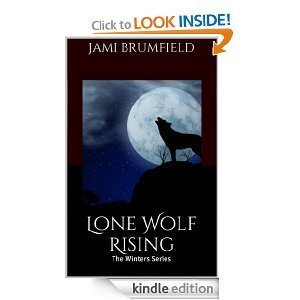
US link: http://www.amazon.com/Lone-Wolf-Rising-Winters-Series-ebook/dp/B00GSFQ5NM/ref=pd_rhf_ee_p_dnr_2
UK link: http://www.amazon.co.uk/Rising-Paranormal-Romantic-Thriller-Winters-ebook/dp/B00GSFQ5NM/ref=sr_1_1?ie=UTF8&qid=1390602411&sr=8-1&keywords=lone+wolf+rising
Have a wonderful weekend and please check out Jami M Brumfield’s Author page here on Facebook if you are interested in being a member of the Street Team for book two Vampire Princess in Training coming out in March 2014.
https://www.facebook.com/pages/Jami-Brumfield/678670618818695?ref=hl


